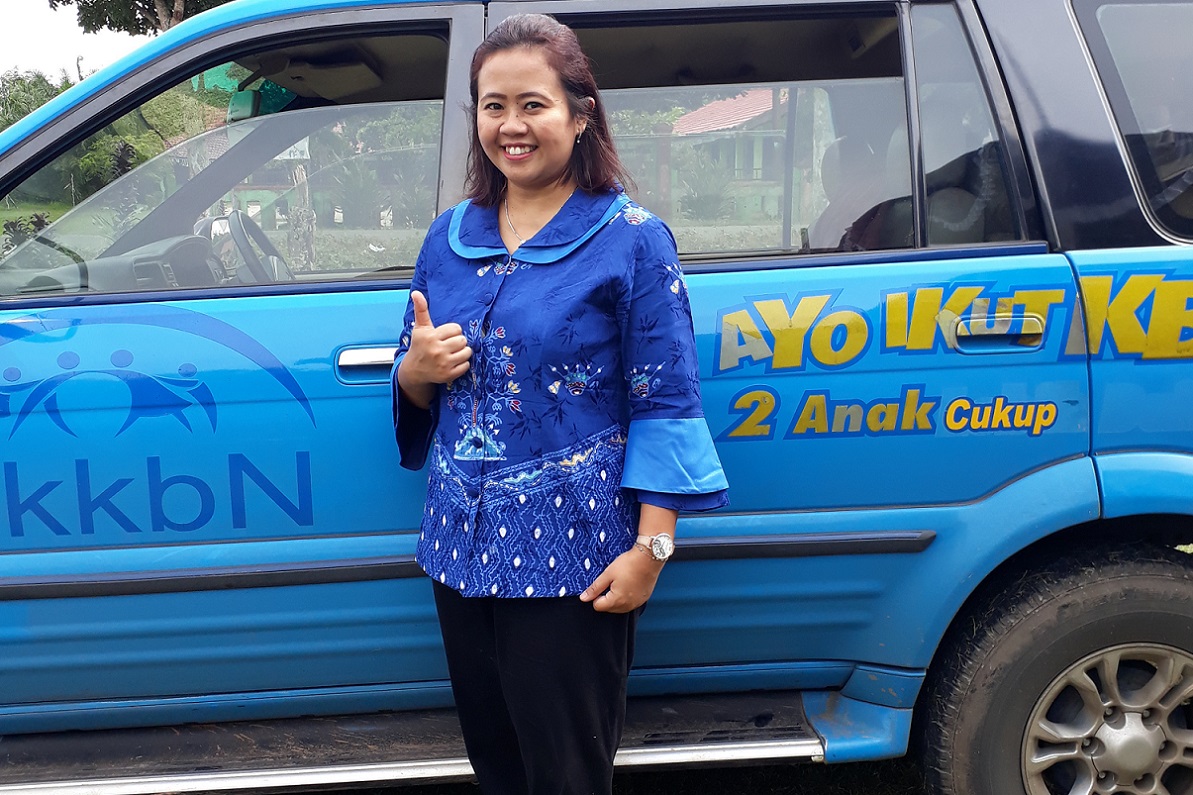
Public health graduate Amalia Dwi Susanti completed her studies at Flinders University last year. Now home in Indonesia, the coronavirus pandemic is providing additional challenges as she settles into her role delivering family planning services to communities in Borneo.
What are you doing now?
After graduating from Flinders University, I returned to Indonesia and started working as a Family Planning Analyst at the National Population and Family Planning Board of Indonesia. My duties include working with a team to ensure that family planning services and education can be accessed by the community, particularly those who are most disadvantaged.
Is the current COVID-19 situation affecting your work?
Every day people testing positive with COVID-19 are increasing, and deaths as well. But thank God, in my province Central Kalimantan, although there are some people under observation, there is no positive case yet.
Government has given the instruction to do social distancing so some government employees should work from home, however I’m still working from the office for now. The COVID-19 outbreak has hindered some of our schedule, especially when gatherings of people are involved (more than 50% of our activities.)
So far, people in my city still act responsibly, there is no panic buying for daily needs, however we have some difficulties finding medical tools like masks, hand sanitisers and alcohol. We are also getting ready for the worst scenario that could happen, despite the limitation of our health facilities. Hopefully, we can stay safe and get through this crisis.
How did your studies at Flinders University impact your professional work?
In my studies, one of the most fundamental skills I learnt was critical thinking. The academic staff encouraged us to analyse scenarios in different perspectives and from a range of viewpoints. I learnt to think more broadly and apply outcomes from previous cases with practical knowledge and considered theory: this is already a significant attribute for me professionally, and an asset for my employers.
Did studying in another country benefit your career and outlook on life?
Definitely! Studying in Adelaide was a great experience for me and broadened my horizons. I was able to immerse myself in a new culture, socialise with friends from other countries and cultures, and to learn from people with a range of different perspectives and experiences.
Personally, my confidence blossomed. I learnt to easily converse with my colleagues and peers, and had a lot of experience with public speaking. Also, my network expanded and I now have professional connections worldwide. My English skills, particularly in academic writing, also greatly improved. I believe that together these experiences benefited my personal development and will be an essential point of difference for my future career.
How might your university studies assist with your future career pathways?
One of the lessons I learnt at Flinders was that education gives you the power to dream, and to succeed. Of course, I want to have a good job, but more than that I want to make a difference in public health in my country, particularly in the areas of family planning, reproductive health, and mother and child health. I now also want to be a university lecturer. Flinders gave me a chance to improve my academic skills, and a range of associated skills such as leadership, networking, public speaking and confidence. I believe that studying at Flinders provided a strong foundation for my future career pathways. And, if I have the chance, I one day hope to return and undertake my PhD in public health.
What is your fondest memory from Flinders?
What I loved most about Flinders was how the lecturers, facilities, and support systems all worked together to create the best experience for me as an international student. I received all the support that I needed to successfully complete my studies with a study / life balance.

